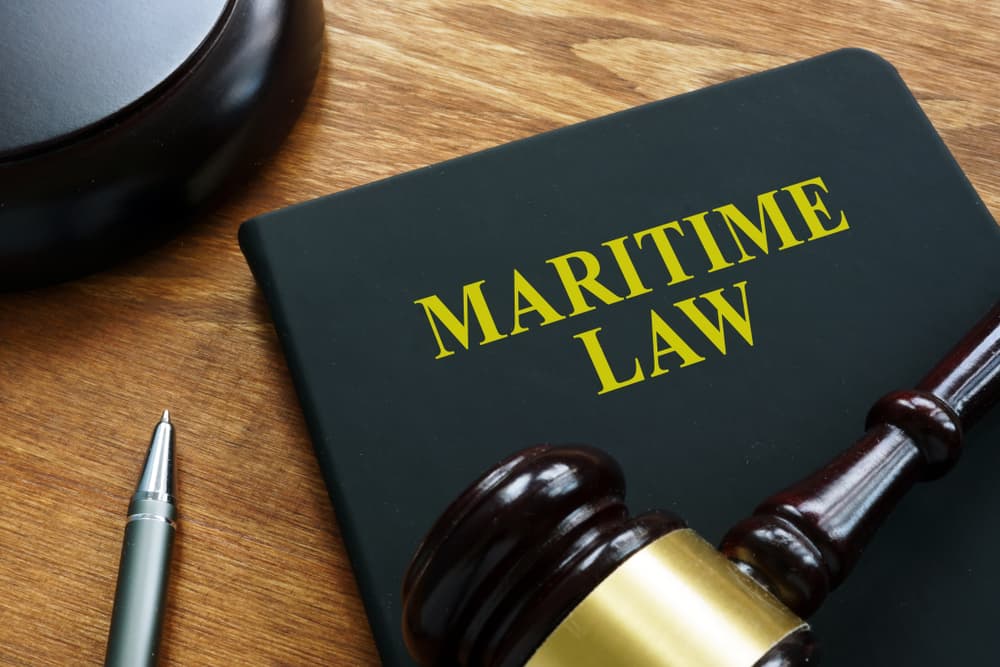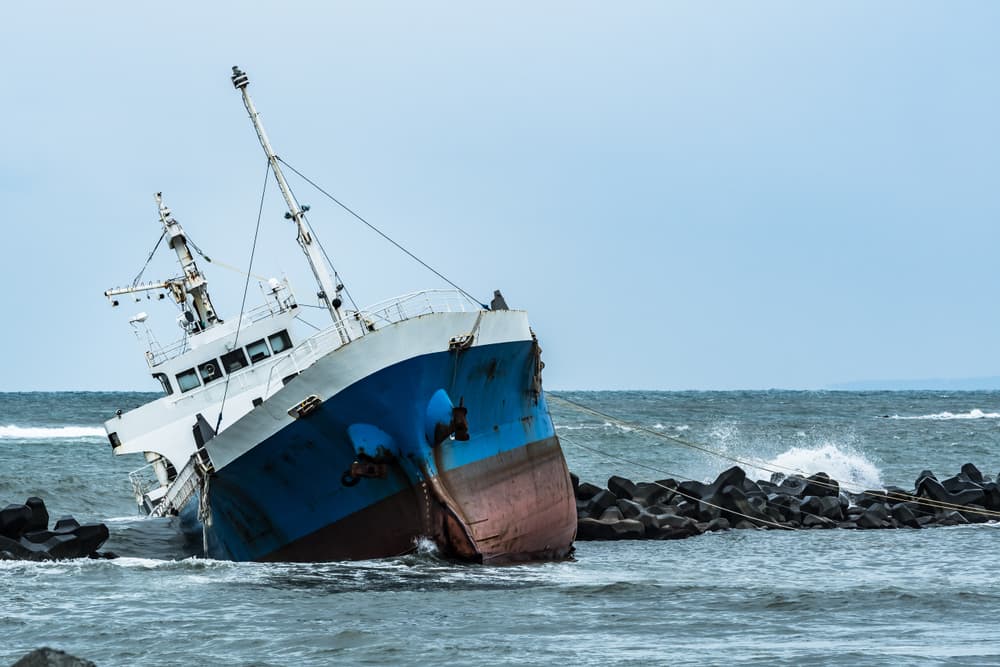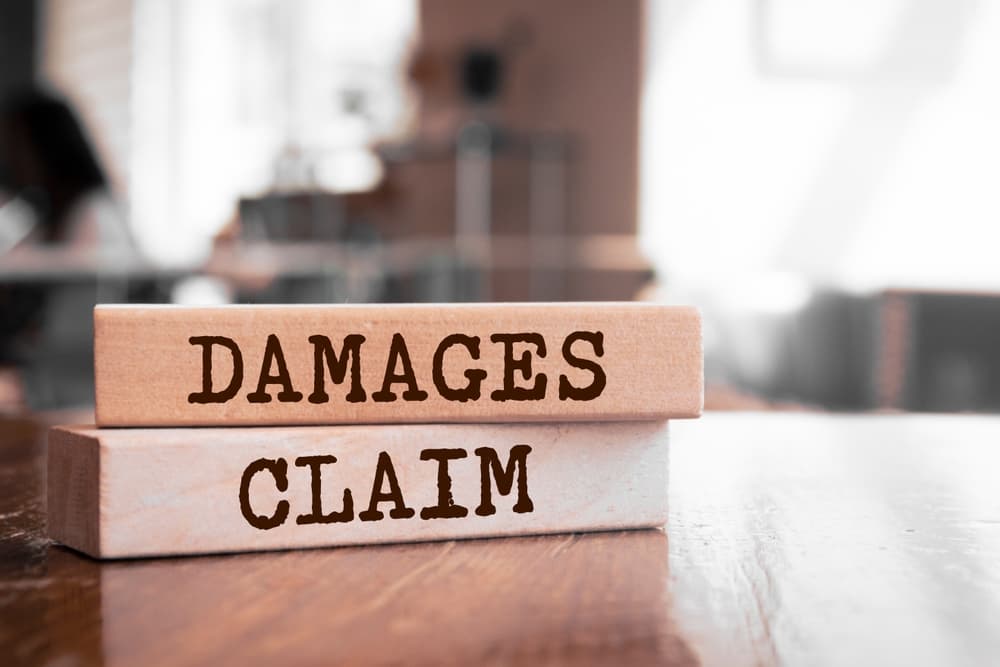Last Updated on February 28, 2025 by The Young Firm
The differences that used to exist between maritime and admiralty law have become less distinct in modern times. The two terms are now used interchangeably to denote the same area of law that deals with activities, injuries, and disputes on or around water.
The only real difference between maritime and admiralty law is between those who choose to handle these cases on their own and those who trust a maritime lawyer from Young Firm to represent them.
What Is Maritime and Admiralty Law?
Most people live according to the “law of the land.” However, there is a different set of laws that govern activities that take place on the water.
This body of law is known as maritime or admiralty law and specifically deals with legal issues related to:
- Navigation and shipping
- Commercial activities on the water
- Maritime commerce and trade
- Marine insurance
- Personal injuries or fatalities at sea
- Salvaging and wreck removal
With the rise of international trade and exploration, maritime law has evolved to encompass many issues, especially accident and injury claims at sea.
The Young Firm is proud to be involved in this area of law and is dedicated to providing top-notch legal representation for those adversely affected by maritime accidents.
What Is Included in Maritime Law?

Longshore Harbor Workers Compensation Act
The Longshore Harbor Workers Compensation Act provides financial compensation for economic damages for employees injured on or around navigable water.
Compensatory employment actions under LHWCA include those who:
- Load and unload vessels
- Repair or build ships
- Work on docks, piers, and wharves
This act provides a predetermined amount of compensation for injured workers based on their average weekly wage, covering current and future medical expenses related to the injury.
The LHWCA also compensates surviving family members if an accident at sea or along the water results in fatalities.
The Jones Act
The Jones Act is a federal law providing legal protections for seamen injured while working on a vessel at sea.
To qualify for compensation under the Jones Act, eligible claimants must:
- Be a seaman at the time of injury
- File within the specified time frame
- Show that their maritime injuries were caused by negligence or unseaworthiness of the vessel
Under this act, injured seamen may seek compensation for lost wages, medical expenses, and pain and suffering. The Jones Act also allows for legal action against employers who fail to provide a safe working environment for their employees on board.
Maintenance and Cure
This legal right is available to all seamen who qualify. Maintenance requires employers to cover day-to-day living expenses when seamen become ill or injured while working on a vessel at sea.
You are considered an eligible seaman if:
- You are employed on a vessel operating in navigable waters
- The vessel is in service or required for use in navigation
- You are assigned to the vessel and contribute to its functioning
- At least 30% of your total work time is spent on board a vessel in navigation
Cure refers to medical expenses related to the injury or illness and requires employers to cover all necessary medical treatment until maximum recovery is achieved.
Death On High Seas Act
The Death on High Seas Act (DOHSA) provides compensation for the families of seamen who are killed while working at sea.
This act covers deaths that occur more than three nautical miles from the shore and allows for recovery for:
- Loss of financial support
- Funeral expenses
- Loss of care, comfort, and companionship for surviving family members
This act is vital to families who have lost a loved one at sea and are seeking compensation for their loss. With the help of a maritime attorney, you can more efficiently navigate the complexities of DOHSA and fight for the compensation you deserve.
Passenger Personal Injury
The general personal injury provisions of maritime law may cover anyone not considered a protected class within the maritime industry, including:
- Cruise ship accidents
- Ferry accidents
- Recreational boating accidents
Injured passengers may seek compensation for medical expenses, lost wages, and pain and suffering in these cases.
What Causes Accidents Covered By Admiralty and Maritime Law?

Negligence or recklessness by ship owners, operators, or other crew members often causes accidents in maritime personal injury cases.
Reckless or negligent actions include:
- Failure to properly train or supervise crew members
- Inadequate maintenance of the vessel
- Violations of safety regulations
- Unsafe working conditions
With the potential for catastrophic injuries resulting from negligence or recklessness, victims need to seek legal representation from a maritime attorney who can help them fight for fair compensation.
What Injuries Occur in Maritime Accidents?
The wet and unsteady environment of vessels and maritime property can lead to a variety of injuries for maritime workers, including:
- Brain injuries: When negligence leaves walkways, stairs, or other areas slippery or cluttered, workers and passengers often suffer traumatic brain injuries from slip-and-fall accidents.
- Spinal cord injuries: Falls, collisions, and lifting accidents on vessels can cause severe damage to the spinal cord, leading to incredible pain, the inability to earn income, and, in extreme cases, partial or complete paralysis.
- Scarring and disfigurement: Negligent equipment maintenance can result in serious injuries that cause permanent scarring or disfigurement. These injuries can affect a worker’s personal and professional life for years to come.
- Broken bones: Impact on hard surfaces or heavy equipment can cause broken bones, fractures, and, in some cases, amputations.
Additionally, wrongful death due to a maritime accident can occur due to the actions of impaired, inexperienced, or otherwise unfit crew members.
Surviving family members can seek justice and compensation under admiralty and maritime laws with the help of an attorney.
How Do I Know If I Have A Valid Maritime or Admiralty Case?
Where did your accident happen?
Valid maritime injury claims heard in admiralty court must have occurred in or around:
- Navigable waters, which include oceans, seas, rivers, and lakes used for trade or commerce
- Piers, docks, and other maritime facilities used for the loading and unloading of vessels
- Any area considered a maritime workplace, such as shipyards or offshore oil rigs.
If your accident occurred in one of these areas, you might have a valid case to seek compensation under admiralty and maritime laws.
When did your accident occur?
Like personal injury claims on land, a filing deadline or statute of limitations applies to admiralty and maritime cases.
In most cases, this deadline is three years from the date of your accident or injury, with possible exceptions made if:
- The claim is made under DOHSA, which has a three-year statute of limitations from the date of death.
- The incident involves an unseaworthy vessel, the deadline may be extended to up to three years after discovering unseaworthiness.
- The accident involves a cruise ship passenger who may have agreed to a shorter statute of limitations as part of the ticket purchase.
It is crucial to consult with a maritime attorney as soon as possible after your accident to ensure that you do not miss any critical deadlines for filing your claim.
What damages did you suffer?
In a valid admiralty or maritime case, you must have suffered damages because of the accident or incident, such as:
- Physical injuries
- Lost wages or earning capacity
- Medical expenses, including past and future treatment
- Pain and suffering
Evidence of these damages is crucial in building a solid case for compensation. A maritime attorney can help gather and present evidence to support your claim.
How Much Is A Maritime Personal Injury Case Worth?

The value of your case can vary depending on the specific maritime law you file under in Admiralty court, the damages you suffered, and other factors.
Sometimes, the recoverable amounts are predetermined. This is often the case with DOHSA and the LHWCA, where the amount is based on lost earnings or earning capacity.
In other cases, such as personal injury claims under general maritime law or the Jones Act, the value of your case may be determined based on factors such as medical expenses, lost wages, and pain and suffering.
Maintenance and Cure payments have a less clear formula for determining the value of damages, with the compensatory amounts determined by the length of recovery time.
So, while maritime and admiralty law differ little in terms of what is covered, they differ starkly in how damages are awarded and calculated.
This fact highlights the importance of hiring an experienced maritime attorney who understands the strict filing deadlines, nuanced legal jargon, and varied methods of compensation that apply in these complicated cases.
Maritime and Admiralty Law FAQ
Is compensation for injured maritime workers a right?
Though injured maritime workers can seek compensation under admiralty and maritime laws, it is not always easy to obtain. Employers and insurance companies will often try to minimize or deny claims, making it essential for victims to have legal representation fighting for their rights.
What if I am a passenger on a cruise ship and get injured?
As a passenger on a cruise ship, you may have agreed to specific terms and conditions when purchasing your ticket. This can include limitations on filing deadlines or how disputes are handled.
Review these terms carefully and discuss your right to compensation with an attorney.
Do I need a maritime or admiralty lawyer?
Essentially, maritime and admiralty law refers to the same system, so you may hear lawyers refer to themselves as admiralty or maritime attorneys.
Choose a lawyer with a successful track record in these cases. They will better understand the complex laws and regulations that apply.
Which family members qualify for death benefits under maritime laws?
Under maritime laws, eligible family members can include the deceased’s spouses, children, parents, and other dependents. The specific qualifications for each type of benefit may vary depending on the law under which you file your claim.
Contact a Young Firm maritime lawyer to understand your rights and options for seeking compensation after the loss of a loved one.
Can I file a maritime case without legal representation?
Technically, yes, but those who seek the assistance of an experienced maritime attorney are more likely to receive fair and just compensation for their injuries. If you do not understand admiralty and maritime laws, you can make mistakes that could harm your chances of receiving proper compensation. Always consult a maritime lawyer before filing any claim.
Anchoring Your Rights: Navigating Maritime and Admiralty Laws Successfully
A lack of difference between the terms maritime and admiralty doesn’t negate the importance of consulting a lawyer who understands how these laws apply to your case.
Whether you are a seaman, fisherman, or passenger on a cruise ship, knowing your rights and choosing an experienced legal advocate is the best way to protect your interests in the complex world of maritime and admiralty law.
Schedule a free consultation with an award-winning maritime law firm to navigate the legal waters of your case confidently.

